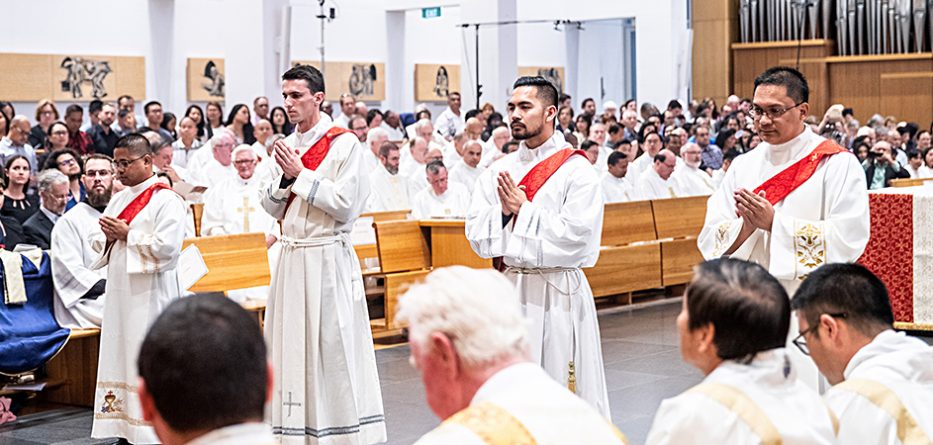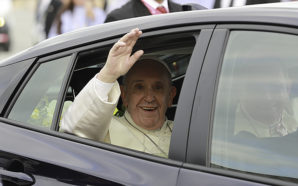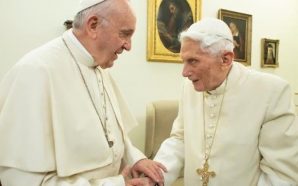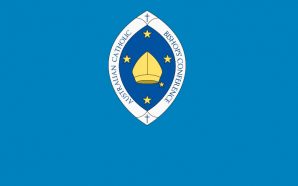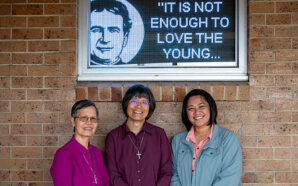This is part eight of an eight-part series on the Sacraments originally published by Franciscan Media.
Having served as a vocation director for 12 years, I have heard most of the excuses for not answering a vocational call. Let me share a few.
One of my favourites is, “I’m not worthy.” Or from a parent, “He’s not worthy.” My favourite response was, “You are (or he is) not, so get over it.” This always stopped the conversation in its tracks, but I was partly serious in my answer. None of us, including Jorge Bergoglio, is worthy of the priesthood. It is a gift from God. And what a gift it is! All we can do is marvel that the Lord is generous and loving enough to let us share in his priesthood.
Next: “I can’t. I’m a sinner.” My answer, “Welcome to the human race!” Aren’t we all sinners? If that were an obstacle, we would have no priests or bishops.
Third: “I like girls.” This is normal. Priests do not hate women or dislike sex. But God has called them to a different expression of their love—one that is not focused on one individual, but on all people.
Fourth: “I want to get married and have a family.” The parental version of this is, “I want to have grandchildren.” Again, this tells me that a man is healthy and has a healthy attraction toward others. So the desire is not the obstacle; it is normal. But the Lord calls some to a bigger family: the Church (cf. CCC 1579).
Fifth: “My parents want me to be a doctor, a lawyer, or a pharmacist.” My response to this was twofold: “What do you want to do with your life?” and “You cannot live your parents’ dream. Your life-mission must be your own.” Most parents want the best for their children. But if the Lord is calling him (or her), you may be bucking the Holy Spirit. Many of the great saints were not fulfilling their parents’ dreams for them. Parents have to let their children go.
Sixth: “I’m gay.” That needs to be considered very discreetly. The Church’s ban on homosexuals in religious life or priesthood is very carefully worded and talks about a “deep-seated gay orientation.” A 2005 document states that the Church “cannot admit to the seminary or to holy orders those who practice homosexuality, present deep-seated homosexual tendencies or support the so-called ‘gay culture’” (cf. Congregation for Catholic Education). Most religious communities and many dioceses take this prohibition seriously, but do not consider it the final word in all cases.
Excuses abound, but if the Lord is truly calling a man or a woman to religious life or priesthood, he or she needs to listen and respond not only for the sake of the Church, but also for his or her own happiness and fulfilment.
How does a man go about becoming a deacon?
It often depends on his local diocesan guidelines. There are some requirements set by canon law, but many implementations of these norms rest with the local diocese. Canon law requires, for instance, a minimum age of 25 for unmarried men; 35 years of age for married men with the consent of their wives. It also requires three years of spiritual/theological formation.
My best advice on this issue would be to contact the local diocese to find out what its process and program is.
How can a priest be returned to the lay state when the Sacrament of Holy Orders leaves such an indelible mark?
When I was in the southwest on assignment, I had the burden of administering a dispensation to a fellow priest/religious. After many months of discernment and legal work, it was finally time to finalise the process of laicisation. The papers had to be signed and notarised and returned to the diocese to be sent to Rome.
This was the first set of dispensation papers I had ever seen and I found something very interesting. The wording was along this line: With this signed document, the Church will no longer hold the man responsible for the external observation of his ordination.
The document very carefully avoided any reference to the man’s one-on-one relationship with the Lord. That was (and is) between him and God, and the Church wasn’t about to touch it.
The reason for this careful distinction has to do with the permanence of ordination—once a priest, always a priest for all eternity. The Church has no jurisdiction over that reality because it is God who ordains and grants the privilege of ministering to his people. But the Church can say that God’s people will no longer look to this man for the kind of witness and ministry appropriate from a priest. He is excused from the external aspects of his ordination.
The dispensation from the promise of celibacy is a separate matter. If the priest is dispensed from celibacy as well as from his ordination and/or vows, he is perfectly free to marry in good standing with the Church.
Once again, it becomes very clear that the sacraments are public matters and, in this case, the community’s right to demand and expect certain ministry and witness is a part of every ordination. A dispensation releases a man from that public responsibility.
Why does the Catholic Church need priests and bishops?
In his divine mercy and love, God decided to invite human beings into his administration of the Church. Obviously, God could run things far more efficiently, but love demands including others. Thus, God’s graces and works involve mediation—they come to us by way of human agents.
The three orders of deacon, priest, and bishop are various ministries within the Church, whereby God allows men to serve as agents in the administration of the Church. Each order has its specific duties in the form of service for the smooth and proper functioning of the Church.
What is the role of the hierarchy?
The hierarchy of the Church includes all those who have received the Sacrament of Holy Orders. Therefore, deacons, priests, and bishops make up the hierarchy within the Church, each with its distinctive roles of service.
An archbishop is a bishop who oversees a group of dioceses as well as his own specific diocese. For example, the archbishop of Cincinnati oversees all of the dioceses in Ohio. While being the bishop of Cincinnati, he (or, rather, the archdiocese) also serves as a court of appeals for all legal proceedings within the other dioceses. The archbishop can also call meetings of the other bishops and coordinate various state-wide efforts when appropriate.
A cardinal can be a layman or an ordained individual belonging to the group (called a college), whose main responsibility is to see to the running of the Church in the absence of a pope and to elect a new pope should the need arise. The living pope can also use the group in various consultative capacities as he sees fit.
Am I called to religious life? How can I discern that call?
A vocation is a gift from God that can be a very mysterious thing. Seldom is it as obvious as the burning bush was for Moses. More often, it is a subtle feeling or sense that maybe God is calling me to serve as a brother, sister, permanent deacon, religious priest, or diocesan priest. Each is a specific call and requires its own unique discernment. But it definitely needs to be checked out.
Generally speaking, if one senses a call to religious life or to the diocesan priesthood, the most important things to do are pray, talk to one’s family and friends, talk to a vocation director, and experience the life of the religious community or diocese.
For more of Fr. Don’s thoughts on Holy Orders, click here.
Fr. Don Miller OFM (d. 2017) was a Franciscan priest of St. John the Baptist Province. He earned a PhD in Moral Theology from the Catholic University of America.
Used with permission from Franciscan Media (www.FranciscanMedia.org).




